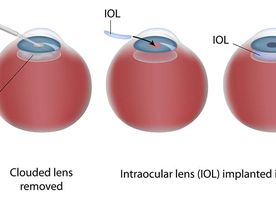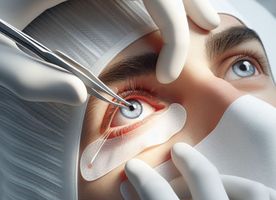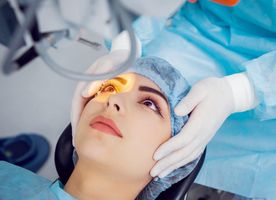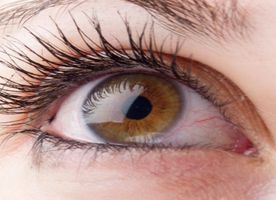Ophthalmology in Romania
Search and Compare the Best Clinics and Doctors at the Lowest Prices for Ophthalmology in Romania
Centrul Oftalmologic Oculus



Ophthalmology at Centrul Oftalmologic Oculus in Bucharest, Romania
Carpatia Group



Ophthalmology at Carpatia Group in Bucharest, Romania
Clinica oftalmologica Dr. Coman Ionela
Ama Optimex





Ophthalmology at Ama Optimex in Bucharest, Romania
Our partner clinics in Romania are accredited by the following associations







































































































































No Time?
Tell us what you're looking for and we'll reach out to the top clinics all at once
WHY US?







































































































































No Time?
Tell us what you're looking for and we'll reach out to the top clinics all at once
















Ophthalmology is a branch of medicine and surgery that focuses on the diagnosis and treatment of eye disorders. Medically trained doctors who care for patients who have eye and vision conditions are called ophthalmologists and are the only practitioners diagnosed and trained to treat all eye and vision problems. Their practice is very diverse, dealing with a wide range of issues and clinical conditions. Some of the most common conditions that they treat and manage include:
- Minor and major eye injuries
- Infectious eye disease
- Dry eyes
- Proptosis (bulged eyes)
- Glaucoma
- Cataracts
- Corneal pathology
- Retinal problems, such as bleeding and detachment or tears of the retina
- Squints
- Eye-related neurological problems
- Excessive tearing
- Intraocular inflammation
- Chronic eye diseases, such as age-related macular degeneration and diabetic retinopathy.
An ophthalmologist can offer a wide range of medical services, including surgical eye procedures. Some of the most common procedures that ophthalmologists perform are as follows:
- Eye examinations.
- Specialized tests, such as ultrasonography of the eyes and optical coherence tomography (OCT).
- Refractive surgery to correct vision, such as LASIK.
- Cataract surgery.
- Glaucoma surgery.
- Cancer treatment.
- Reconstructive surgery to repair birth abnormalities or trauma, such as crossed eyes.
- Neoplasm removal.
- Corneal transplants.
- Repairing torn or detached retinas.
- Strabismus surgery.
- Oculoplastic surgery (plastic surgery around the eye).
- Prescribing and fitting glasses and contact lenses.
How Long Should I Stay in Romania?
Your length of stay depends on the type of treatment you undergo. In general, you may need to stay in Romania for at least a week or to let your eyes recover and to attend follow-up checkups, where your ophthalmologist checks your condition and make sure that your eyes are healing properly. If everything is fine, they will allow you to leave for home. However, for some surgery, such as retinal detachment surgery, you should avoid flying until your eyes have fully healed. Therefore, it is best that you wait 3 to 4 weeks, sometimes even longer, before you travel home.
What's the Expected Recovery Time?
Recovery time depends on the type of surgery you underwent, your age, and overall health. It is generally recommended to rest your eyes for a few days. With LASIK, you may be able to return to work after a day. After a corneal transplant, you should wait for 2 to 3 weeks until you go back to work.
What Aftercare is Required?
Your ophthalmologist will give you instructions to care for your eye after the procedure. It is crucial that you follow all of them to have a quick recovery and obtain optimum results. To keep the result or to prevent complications, you will need to make some lifestyle changes, such as avoid smoking and staying active. You also need to attend regular checkups, typically once a year, with your local eye doctor or your ophthalmologist in Romania.
What's the Success Rate?
Thanks to the continuous advancement of ophthalmology, eye treatments, and surgeries are now highly successful and safe. For instance, the latest research of LASIK showed that it has a 99% success rate in achieving 20/40 vision or better, whereas the success rate of corneal transplant is as high as 90%. However, it is important to be aware of the risks and side effects of eye treatments and surgeries, such as dry eyes, temporary visual problems, overcorrections, under correction, astigmatism, regression, and, very rarely, vision loss.
Are there Alternatives?
For some eye problems, you may be able to go to an optometrist as an alternative. However, if your conditions need to be treated through surgery, your optometrist will refer you to an ophthalmologist.
This information has been accurately sourced and verified by a medical professional for its accuracy, however, we strongly recommend you to consult with your doctor before pursuing medical procedures overseas.






